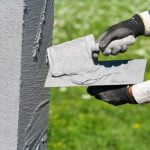What is the home improvement grant? A home improvement grant is a form of financial assistance provided by various entities to homeowners for the purpose of renovating, repairing, or upgrading their properties. These grants play a crucial role in helping homeowners maintain and improve the value of their homes without incurring large out-of-pocket expenses.
Home improvement grants are particularly important for homeowners who may not have the financial resources to cover the costs of necessary repairs or upgrades. By providing access to funds that do not need to be repaid, these grants help ensure that all homeowners have the opportunity to enhance their living spaces and increase the overall quality of their homes.
From federal grants to state and local government programs, as well as offerings from non-profit organizations, there are various types of home improvement grants available to homeowners. These grants not only provide financial assistance but also contribute to community development and help address issues such as energy efficiency and accessibility.
In the following sections, we will explore the different types of home improvement grants, eligibility criteria, benefits, application processes, successful project examples, common pitfalls to avoid, and ultimately emphasize the importance of leveraging home improvement grants for your own projects.
Types of Home Improvement Grants
When considering making improvements to your home, it’s important to explore what is the home improvement grant and the different types available to homeowners. These grants provide financial assistance for renovations, repairs, and upgrades that can enhance the comfort, safety, and value of your property. Understanding the various options for home improvement grants can help you determine which ones may be the most beneficial for your specific needs.
Here are some types of home improvement grants that homeowners can consider:
- Federal Grants: The federal government offers various programs that provide funding for home improvements, such as the Home Rehabilitation Program and the Weatherization Assistance Program. These grants aim to support low-income families in making their homes more livable and energy-efficient.
- State and Local Government Grants: Many states and local governments also offer grants for home improvements, often targeting specific community development goals or addressing housing quality issues. These grants may have varying eligibility requirements based on location.
- Non-Profit Organizations: Some non-profit organizations provide home improvement grants to help individuals with limited financial resources make necessary upgrades to their homes. These grants can cover a wide range of projects, from critical repairs to accessibility modifications.
Understanding the different types of home improvement grants available can help homeowners access valuable resources to enhance their living spaces. By researching these opportunities and determining eligibility criteria, you can take advantage of financial assistance to improve your property effectively. Remember to carefully review each grant program’s requirements and guidelines before applying to increase your chances of receiving funding for your project.
Eligibility Criteria for Home Improvement Grants
Home improvement grants can be a valuable resource for homeowners looking to make necessary renovations or upgrades to their properties. But before applying for such grants, it is essential to understand the eligibility criteria involved. One of the primary factors that determine eligibility for a home improvement grant is income. Different grant programs may have varying income requirements, with some specifically targeting low-income households. Homeowners must often demonstrate financial need to qualify for these grants.
In addition to income requirements, property ownership is another crucial criterion for home improvement grants. Typically, homeowners who apply for these grants must own the property where the improvements will take place. This ensures that the funds are being used to enhance the living conditions of individuals who have a vested interest in maintaining their homes. Renters or those without homeownership status may not be eligible for certain grant programs.
Furthermore, specific project requirements also play a role in determining eligibility for home improvement grants. Some grant programs may focus on particular types of improvements, such as energy efficiency upgrades or safety enhancements. Homeowners must carefully review the guidelines of each grant opportunity to ensure that their planned projects align with the program’s objectives. By meeting all eligibility criteria, homeowners can increase their chances of securing a home improvement grant and improving their living spaces.
| Eligibility Criteria | Details |
|---|---|
| Income Requirements | Different programs target varying income levels |
| Property Ownership | Homeowners must own the property where improvements will occur |
| Specific Project Requirements | Grant programs may focus on particular types of improvements |
Benefits of Home Improvement Grants
Home improvement grants offer numerous benefits for homeowners looking to make necessary updates or upgrades to their properties. Here are some key advantages of utilizing home improvement grants:
- Cost savings: One of the most significant benefits of home improvement grants is the potential for cost savings. By receiving assistance through a grant, homeowners can significantly reduce the financial burden of making necessary repairs or improvements to their homes.
- Increased property value: Upgrading your home through a grant-funded project can lead to a significant increase in your property’s value. By modernizing and improving various aspects of your home, you can attract more potential buyers in the future.
- Energy efficiency improvements: Many home improvement grants focus on making properties more energy-efficient. By installing energy-saving features such as insulation, energy-efficient appliances, and solar panels, homeowners can reduce their utility bills and decrease their environmental impact.
With these benefits in mind, it’s clear that home improvement grants are a valuable resource for homeowners looking to enhance their living spaces without breaking the bank. By taking advantage of available grant opportunities, homeowners can make significant upgrades to their properties while saving money in the process.
How to Apply for a Home Improvement Grant
One of the most crucial steps in securing a home improvement grant is understanding how to apply for one. The first step is to research the available grants that align with your specific project needs and geographical location. This involves exploring federal grants, state and local government programs, as well as non-profit organizations that offer funding for home improvement projects. By identifying the right grant opportunities, homeowners can increase their chances of receiving financial assistance for their renovations.
Once you have identified potential home improvement grants to apply for, it is important to understand the application process thoroughly. Each grant program may have different requirements and procedures, so make sure to read the guidelines carefully. Take note of any deadlines, documentation needed, and specific project criteria that must be met. By following the application instructions diligently, homeowners can present a strong case for why they should receive the grant funds for their renovation project.
For a successful home improvement grant application, there are some key tips to keep in mind. Firstly, make sure to provide all required documentation in full and ensure it is up-to-date. Additionally, clearly articulate your renovation plans and how the grant funds will be used to improve your property.
It can also be beneficial to include any relevant supporting materials such as quotes from contractors or photos of the current state of your home. By putting together a thorough and persuasive application package, homeowners can enhance their chances of securing the funding needed for their desired renovations.
| Benefits | Details |
|---|---|
| Cost savings for homeowners | By receiving financial assistance through grants, homeowners can save money on their renovation projects. |
| Increased property value | Home improvements funded by grants can lead to an increase in property value over time. |
| Energy efficiency improvements | Some home improvement grants focus on energy efficiency upgrades which can reduce utility costs in the long run. |
Examples of Successful Home Improvement Grant Projects
Transformation Through Home Improvement Grants
Home improvement grants have played a crucial role in transforming outdated and dilapidated properties into beautiful, functional homes for many homeowners. One striking example of a successful home improvement grant project is the renovation of a historic home in a small town that was on the verge of being demolished. With the assistance of a government-funded grant program, the homeowners were able to restore the home’s original charm while making necessary upgrades to meet modern standards.
Enhancing Energy Efficiency
Another common success story with home improvement grants involves enhancing energy efficiency in households. Through grants provided by both federal and local governments, homeowners have been able to make significant improvements to their properties, such as installing solar panels, upgrading windows and doors for better insulation, and replacing outdated HVAC systems. These energy-efficient upgrades not only contribute to a more sustainable environment but also result in substantial cost savings for homeowners in the long run.
Improving Accessibility and Safety
Home improvement grants have also been instrumental in improving accessibility and safety within homes, particularly for elderly or disabled individuals. By receiving financial assistance through grant programs, homeowners have been able to make modifications such as adding wheelchair ramps, widening doorways, installing grab bars in bathrooms, and incorporating other safety features to create a more comfortable living environment. These projects not only enhance the quality of life for occupants but also increase the overall value of the property.
Common Pitfalls to Avoid When Applying for Home Improvement Grants
When applying for a home improvement grant, it is essential to be aware of common pitfalls that can hinder your chances of securing funding for your project. By understanding these pitfalls and taking proactive steps to avoid them, homeowners can increase their likelihood of successfully obtaining a home improvement grant.
Missing Application Deadlines
One of the most critical mistakes to avoid when applying for a home improvement grant is missing application deadlines. Grant programs often have strict deadlines for submissions, and failing to submit your application on time can result in your application being disqualified. To prevent this from happening, be sure to carefully review the deadline for each grant program you are interested in and plan accordingly to ensure that your application is submitted before the deadline.
Incomplete Documentation
Another common pitfall when applying for a home improvement grant is submitting incomplete documentation. Grant programs typically require specific information and documentation to evaluate your eligibility and project details accurately. Failure to provide all required documentation can result in delays or rejection of your application. To avoid this pitfall, carefully review the list of required documents for each grant program you are applying to and make sure you gather and submit all necessary paperwork.
Lack of Understanding of Grant Requirements
A crucial mistake that homeowners often make when applying for home improvement grants is not fully understanding the requirements of the grant program they are applying to. Each grant program has its own set of eligibility criteria, project requirements, and funding limitations.
Failing to thoroughly research and comprehend these requirements can lead to wasted time and effort on applications that do not align with the grant’s objectives. Before applying for a home improvement grant, take the time to read through all guidelines provided by the program and ensure that your project meets all necessary criteria.
Conclusion
In conclusion, home improvement grants offer valuable opportunities for homeowners to make necessary upgrades and renovations to their properties, often at little to no cost. These grants not only provide financial assistance but also promote the overall well-being of communities by supporting property improvements. Understanding what a home improvement grant is and knowing the different types available – from federal grants to local non-profit organizations – can help homeowners take advantage of these valuable resources.
By meeting the eligibility criteria for home improvement grants, such as income requirements and specific project guidelines, homeowners can access funding that may otherwise be out of reach. The benefits of home improvement grants extend beyond just cost savings, as they can lead to increased property value and improvements in energy efficiency. These grants are a valuable tool for homeowners looking to enhance the comfort, safety, and value of their homes.
Therefore, it is essential for homeowners to research available home improvement grants, understand the application process, and avoid common pitfalls when applying. By taking advantage of these opportunities and successfully navigating the grant application process, homeowners can transform their living spaces with support from grant funding. Overall, what is the home improvement grant offers a pathway for homeowners to achieve their renovation goals while making a positive impact in their communities.
Frequently Asked Questions
Who Is Eligible for Government Home Improvement Grant in Wisconsin?
Residents of Wisconsin who meet certain income requirements and have a specific need for home improvements may be eligible for government home improvement grants. These grants are typically aimed at low-income households or individuals with disabilities to assist them in making necessary repairs or upgrades to their homes.
What Is the Ohio Housing Assistance Grant Program?
The Ohio Housing Assistance Grant Program is a state-funded initiative that provides financial assistance to eligible homeowners in Ohio who require help with home repairs, energy efficiency upgrades, or accessibility modifications. This program aims to improve living conditions for residents and ensure that they can safely remain in their homes.
Who Is Eligible for Government Home Improvement Grant Florida?
In Florida, eligibility for government home improvement grants may vary depending on the specific program. Typically, these grants are available to low-income households, elderly individuals, persons with disabilities, and families facing financial hardship. Qualifications may include meeting income thresholds and demonstrating a genuine need for assistance with home repairs or renovations.

I’m thrilled to have you here as a part of the Remodeling Top community. This is where my journey as an architect and remodeling enthusiast intersects with your passion for transforming houses into dream homes.





